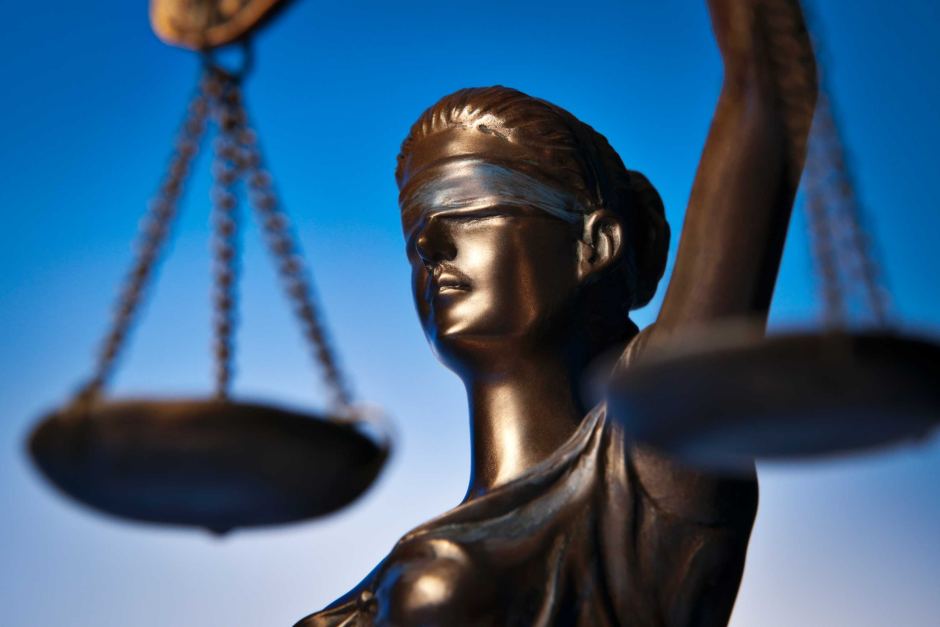See No Evil
I’m just a plainspoken Colorado criminal defense lawyer, but the way I see it…
They say justice is blind.
A man I talked with a while ago — the father of a tennis pro acquitted of charges of raping a former student and two other teenage girls — will tell you justice is deaf and dumb as well.
He didn’t want to talk with me. “We’re afraid to talk about it — that’s how frightened we were,” he told me. “If the police could do this to us…” He let the sentence hang ominously.
What the police did to them, what they did to his son, was to confront the young man at his home, where he’d quietly lived with his parents for twenty-six years, slap a pair of handcuffs across his wrists, and march him off to jail in the middle of the night.
Exactly thirty days earlier, three girls aged fifteen to seventeen were returning to their dormitory after a dance at their private girls’ school. Out of the dark, the girls said, came a tall, thin, athletic-looking man in his late forties. His legs were bare; he might have been jogging. Most men don’t jog, however, with a bandanna pulled over their faces. And most don’t carry a gun.
One after another, he made them lie on the ground, face down. One after another, he made them turn over onto their backs; one after another, he raped them. The girls said they could hear joggers run by, unaware, only a few feet away. The girls were afraid that if they screamed, or made any noise at all, he would kill them.
After a month-long investigation, the young tennis pro was arrested. Before his arrest, he had been doing well, with his own tennis shop. He coached the college women’s varsity team, and taught at the victims’ school. In fact, he gave tennis lessons to the key witness among the victims.
At trial, that girl testified that as she and her two friends pored over police mug shots, trying to spot their assailant — whose bandana had at one point in the attack slipped to his chin — she was startled by, and then set aside, a picture of the accused.
“That can’t be him,” was her reaction. “I know him.” She had been in a group of girls who had taken ten ninety-minute lessons from him.
Later, according to her testimony, she feared he might indeed be the rapist. The other two girls, too, said the photograph most closely resembled their assailant.
The circumstances under which his likeness came to be in the presence of prospective rapists, and other details of the police investigation and the trial, were never disclosed. The judge, to protect the teenage victims, closed the trial to the public and the press, and ordered that transcripts of the testimony and documents pertaining to the proceedings be sealed. Though the local newspaper filed suit against the court, by the time the case was heard the young man had already been acquitted at trial, and the higher court ruled that, despite the judge’s error, the issue was moot, and unsealing the files would only harm the victims.
The decision certainly harmed the accused man. Because the trial was conducted in secret, that secrecy reinforced the public’s natural suspicion of an arrested man. Because nothing was made public, other than the jury’s verdict of not guilty, there was nothing to suggest he was indeed innocent. Pre-trial newspaper and television coverage in abundance about his arrest suggested he could well be guilty. “He got off!” was the common reaction after the verdict.
The district attorney certainly believed that. The police were positive of it.
During the seven months between his arrest and acquittal, the accused was punished almost as if he had been convicted. His business was shattered. He couldn’t teach tennis anymore: not many fathers send their daughters off to be taught tennis by men accused of rape. In the course of the trial, someone painted “RAPIST” on the front of his tennis store. He closed the store.
The father said his son was a ruined man.
There was no justice for him.
Neither was there justice for the victims. Someone raped those three girls.
But the district attorney who prosecuted the case, said that unless the rapist just presented himself, there won’t be another day in court for the girls. “If you try one set of people for a charge,” the prosecutor said, “and they’re acquitted, you can kiss it goodbye.”
I asked the chief investigating officer assigned to the case about the implication of the verdict — that if it is true the girls were raped, then it is equally true that the rapist is free somewhere, perhaps still in the community. He was startled by the question.
“No,” he said,” we’re not looking for anybody else.”
